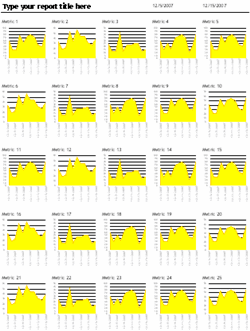Why a Well‑Structured Business Report Matters
Clear, data‑driven reports are the backbone of strategic decision‑making. A professionally written business report builds trust, reduces internal politics, and ensures that every stakeholder receives the same accurate information.
Key Parts of a Business Report (9 Core Sections)
- Cover Letter or Memorandum – introduces the purpose and audience.
- Title Page – shows the report title, date, and organization details.
- Executive Summary – a 1‑page snapshot of findings, conclusions, and top recommendations.
- Table of Contents – lets readers navigate quickly.
- Introduction – sets the context, defines the problem, and previews the structure.
- Findings & Discussion – presents evidence, analysis, and interpretation.
- Conclusions – distills the main take‑aways.
- Recommendations – actionable steps, each beginning with a strong verb.
- References & Appendices – source citations and supplemental data.
Step‑by‑Step Guide to Writing the Report
1. Define the Purpose and Audience
Ask yourself:
- What decision will this report inform?
- Who will read it (executives, middle managers, external partners)?
- What level of detail is needed?
2. Gather and Analyse Data
Use reliable sources – internal databases, market research, or financial statements. Apply a simple SWOT or PESTLE analysis to structure the discussion.
3. Draft the Outline
Map each core section to a heading. Keep the hierarchy logical – H2 for major sections, H3 for sub‑points.
4. Write the Executive Summary First
Even though it appears at the front, drafting it early helps you stay focused on the most important outcomes.
5. Flesh Out Findings & Discussion
Present graphs, tables, or bullet points. Every claim must be backed by data.
6. Conclude and Recommend
Summarize key insights in 2‑3 sentences. Follow each recommendation with a concrete action, deadline, and responsible party.
7. Polish the Front Matter
Write a concise cover letter, design a clean title page, and generate an automatic table of contents (Word, Google Docs, or Excel).
Industry‑Specific Examples
Finance – Quarterly Performance Report
Focus on revenue trends, cash‑flow analysis, and risk exposure. Use the financial statements templates to ensure consistent formatting.
Marketing – Campaign ROI Review
Show conversion metrics, cost‑per‑lead, and lifetime‑value. Pair the analysis with the marketing plan template for seamless hand‑off.
Operations – Process Improvement Report
Map current vs. desired process flows. Include a Gantt chart created with the automated Excel reporting tool.
Templates & Tools to Accelerate Your Writing
Save hours by using ready‑made resources:
- One‑Page Executive Excel Report Template – perfect for quick executive summaries.
- Business Plan Template – provides a solid framework for strategic sections.
- Automated Excel Financials – pulls real‑time data into your report tables.
- Customer Retention Checklist – enriches the recommendations section.
Quick‑Start Checklist (Copy‑Paste into Your Document)
| Section | Key Items to Include | Status |
|---|---|---|
| Cover Letter / Memo | Purpose, requested by, brief overview | ☐ Done |
| Title Page | Title, date, author, organization logo | ☐ Done |
| Executive Summary | Problem, methodology, key findings, top 3 recommendations | ☐ Done |
| Table of Contents | All headings with page numbers | ☐ Done |
| Introduction | Context, problem statement, report scope | ☐ Done |
| Findings & Discussion | Data tables, charts, analysis narrative | ☐ Done |
| Conclusions | Summarize insights in 2‑3 sentences | ☐ Done |
| Recommendations | Action verb + what + who + when | ☐ Done |
| References & Appendices | Citation style, raw data, extra charts | ☐ Done |
Next Steps
Download the free One‑Page Executive Excel Report Template and start populating the sections above. Customize the layout to match your brand, add your data, and you’ll have a polished business report ready for senior leadership within minutes.
Further Reading
For deeper guidance on related topics, explore our library of strategy packs and automation tools, such as the Financial Dashboard Excel and the Pricing Optimization Playbook.































